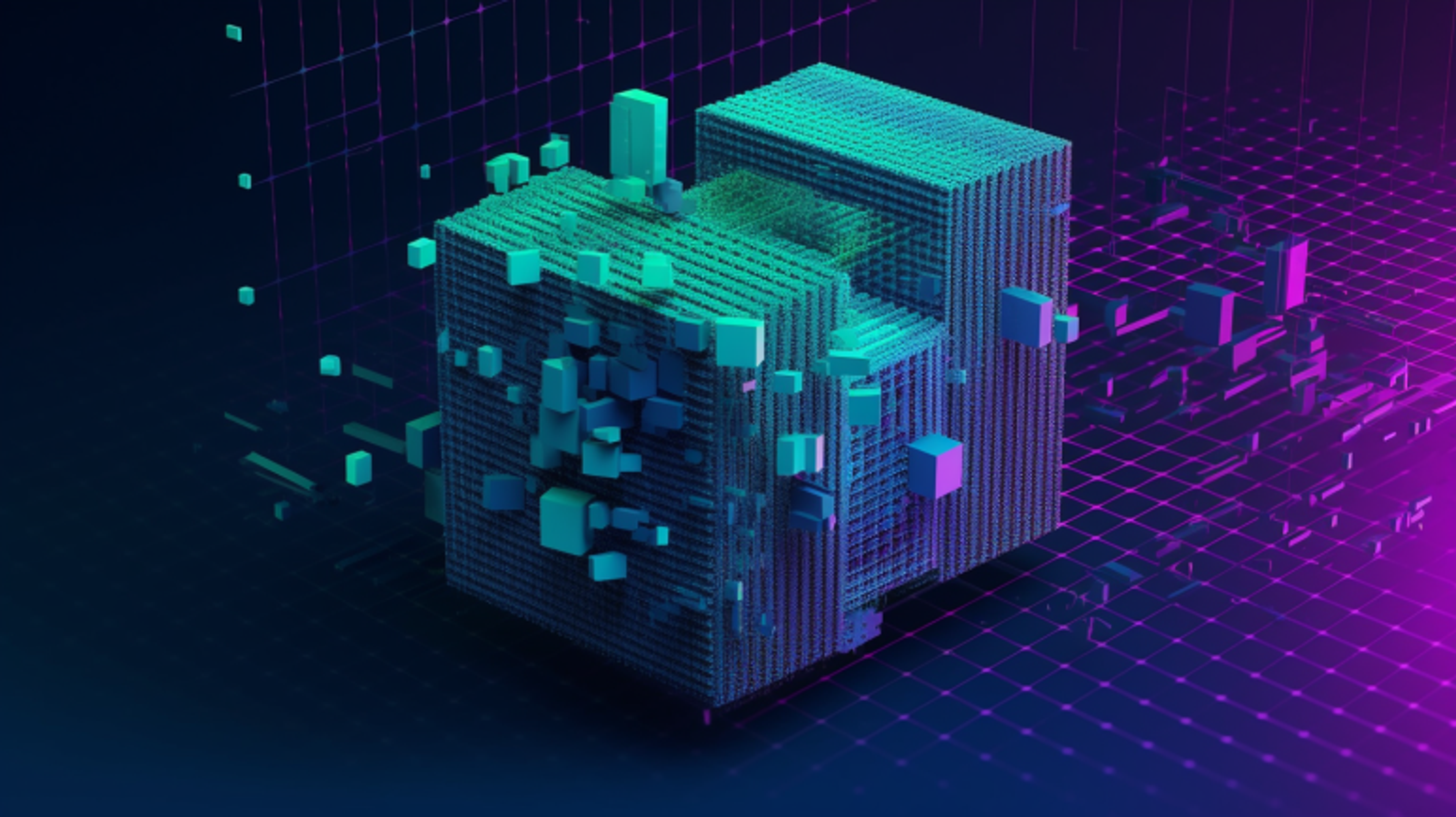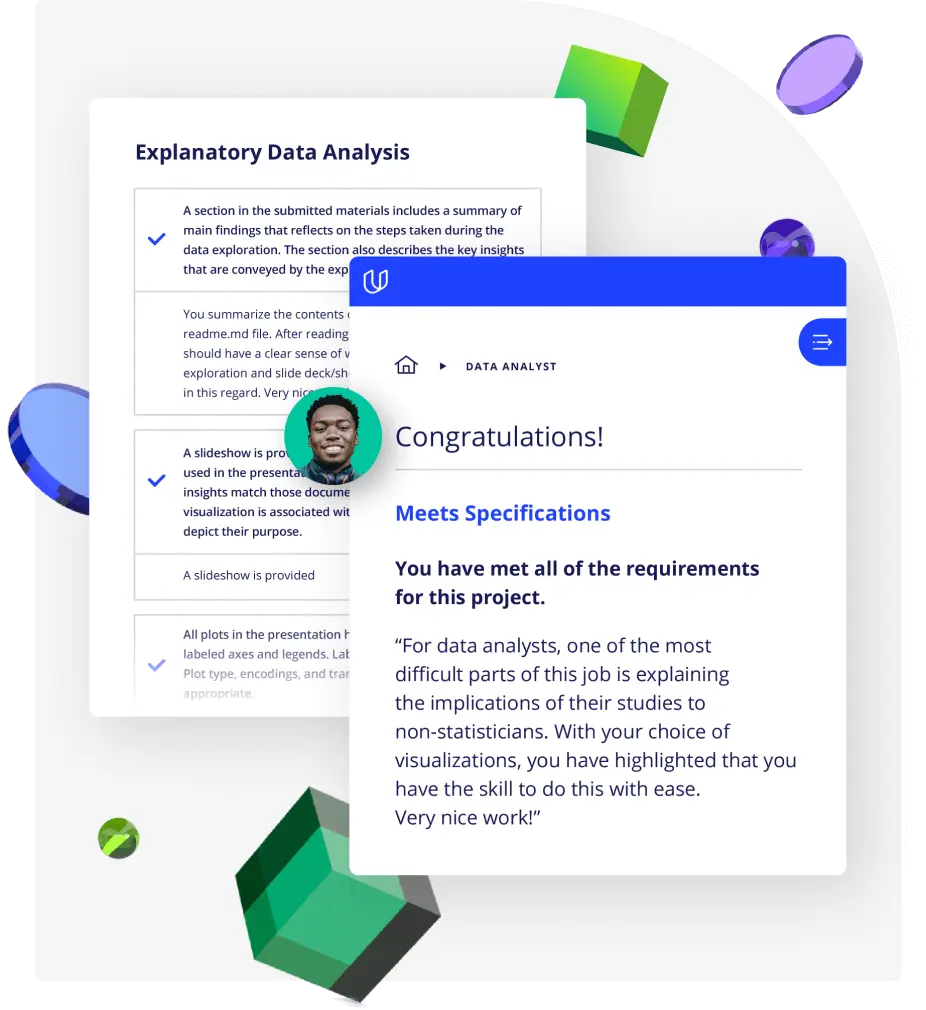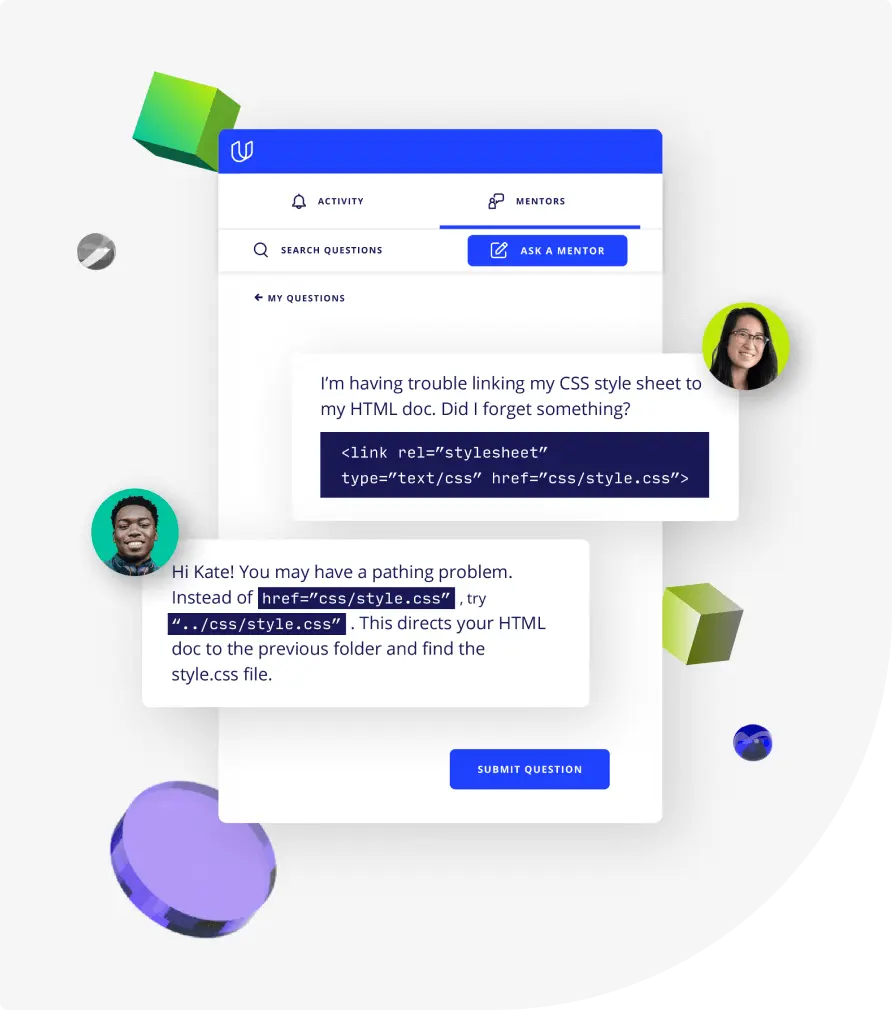Josh Bernhard
Staff Data Scientist
Josh has been sharing his passion for data for over a decade. He's used data science for work ranging from cancer research to process automation. He recently has found a passion for solving data science problems within marketplace companies.
Karl Krueger
Command Line Instructor
Before joining Udacity, Karl was a Site Reliability Engineer (SRE) at Google for eight years, building automation and monitoring to keep the world's busiest web services online.
Derek is the CEO of Mode Analytics. He developed an analytical foundation at Facebook and Yammer and is passionate about sharing it with future analysts. He authored SQL School and is a mentor at Insight Data Science.
Richard Kalehoff
Instructor
Richard is a Course Developer with a passion for teaching. He has a degree in computer science, and first worked for a nonprofit doing everything from front end web development, to backend programming, to database and server management.
Juno Lee
Curriculum Lead at Udacity
Juno is the curriculum lead for the School of Data Science. She has been sharing her passion for data and teaching, building several courses at Udacity. As a data scientist, she built recommendation engines, computer vision and NLP models, and tools to analyze user behavior.









